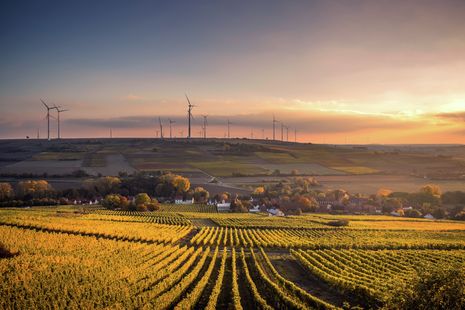The personal is political in Alcarràs
Carla Simón’s sophomore feature is a slice of life from a peach-farming family facing eviction in rural Catalonia

Carla Simón’s sophomore feature Alcarràs follows a family of peach farmers facing eviction from the land they’ve been cultivating for generations. The film’s narrative premise is simple: it captures a “slice of life” from the Solé family’s last harvest before they have to leave their home. It’s an ode to mumblecore. A love letter to fly-on-the-wall filmmaking. There is no satisfying beginning or end, much as there are no protagonists, since the focus flits democratically around the ensemble of characters.
Instead, the leading role is the expansive Catalonian landscape. The farm is the currency through which the family experiences their place in the world, and it becomes the site of their conflict and reconciliation. Roger, the eldest son, spends every waking hour compulsively caring for the land, quietly desperate for the paternal approval that he never receives. Neglect becomes unbearable and Roger lashes out by flooding the peach farm — Simón’s poetic replacement for Roger letting the water works out.
“Instead, the leading role is the expansive Catalonian landscape”
On the flip side, the Solé grandfather’s beloved fig tree becomes symbolic of the cursed union between the Solés and their landlords, the Pinyols, since it was planted by them both during the Spanish Civil War. The tree harks back to a past moment of alliance between the now warring families, and subsequently becomes a weapon in the fight. Pleading for the eviction process to cease, the grandfather delivers a basket of figs to the Pinyol patriarch’s house as a fruity reminder of their families’ previous unwavering solidarity and mutual support. The fruity reminder falls on deaf ears, though, since money and survival have become more valuable than loyalty in the changing agricultural landscape,
We watch our main character, the farm itself, become invaded by cranes and solar panels; modernisations we don’t necessarily disagree with, but which nevertheless heartbreakingly displace the Solés. Simón doesn't flatten this complexity.
The farm isn't a pastoral paradise. It's a real place with real people whose livelihoods are under threat. Simón never judges or idealises them, and the camera's lens remains a morally ambivalent eye through which we look. Moments that expose their flaws, like Quimet using racist language to refer to the African workers he employs, or the second generation of the family referring to their sister's girlfriend as her 'friend', become significant in themselves. And Simón doesn't spoon-feed us with how we should react; we don't always have to be sympathetic.

Aftersun is a beautifully unsettling reflection on familial relationships
And, embracing the nuances of human relationships, Alcarràs shines most in its group scenes, with the intergenerational family resembling a sort of theatrical Greek ensemble. Their mood as a collective is impacted by the emotions of each individual member, like the entwined characters of Virginia Woolf's The Waves: when one is bruised they all feel bruised. For Simón's equivalent ensemble, to take their anger out on the farm is to take it out on each other; in turn, to work on the farm together is to nurture and nourish one another.
French philosopher Gaston Bachelard said that words to the effect of: 'a house that has been experienced is not an inert box’; the family's farm might be mere impersonal land to the capitalist agricultural giants, but for them it is, in an almost spiritual sense, their home.
Alcarràs will not be everyone’s cup of tea. It is a slow film that basks in the banal and mundane rather than chasing exciting plot lines. There are far juicier and sexier films about capitalism, but none so touching or humane.
 News / University Council rescinds University Centre membership20 February 2026
News / University Council rescinds University Centre membership20 February 2026 News / Hundreds of Cambridge academics demand vote on fate of vet course20 February 2026
News / Hundreds of Cambridge academics demand vote on fate of vet course20 February 2026 News / Judge Business School advisor resigns over Epstein and Andrew links18 February 2026
News / Judge Business School advisor resigns over Epstein and Andrew links18 February 2026 News / Union cancels event with Sri Lankan politician after Tamil societies express ‘profound outrage’20 February 2026
News / Union cancels event with Sri Lankan politician after Tamil societies express ‘profound outrage’20 February 2026 News / Caius students fail to pass Pride flag proposal20 February 2026
News / Caius students fail to pass Pride flag proposal20 February 2026









